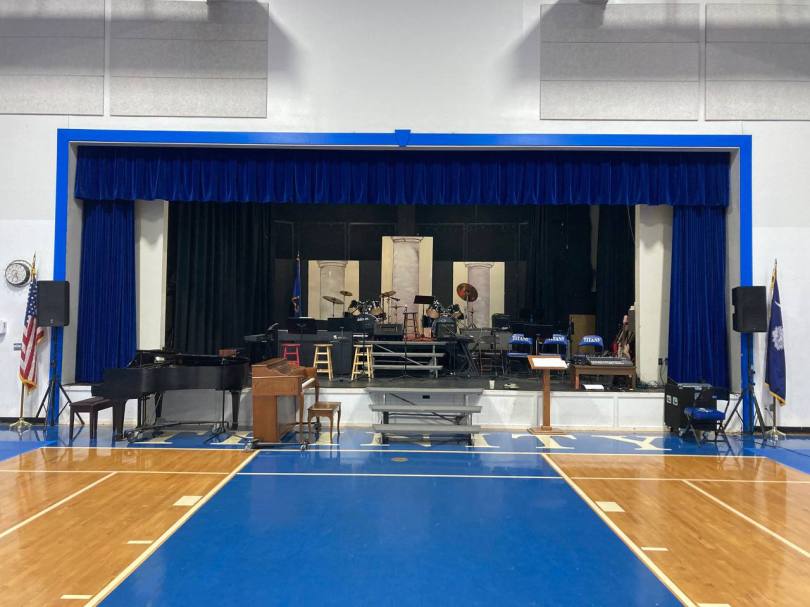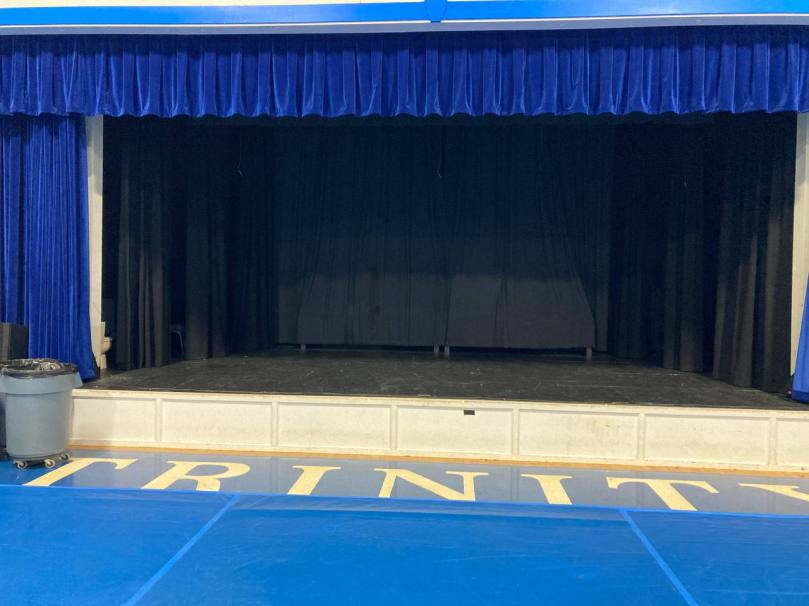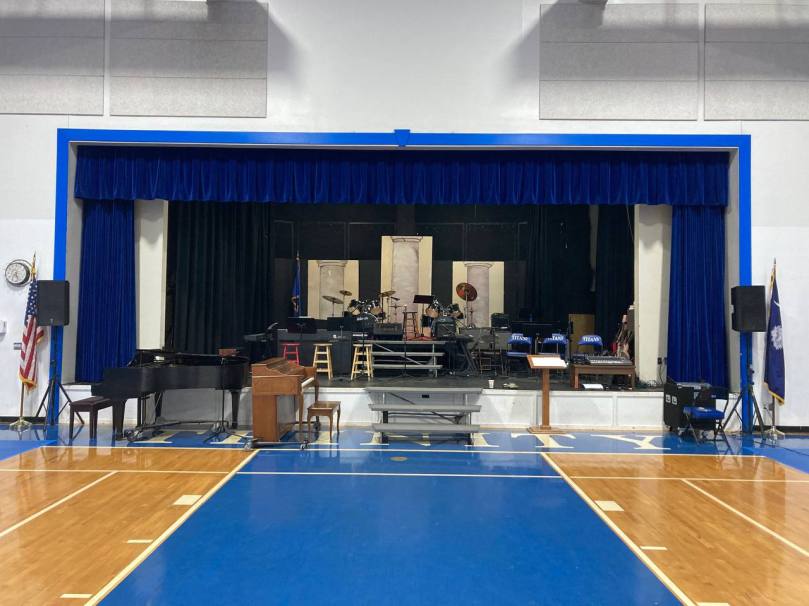Today’s post is a SubscribeStar Saturday exclusive. To read the full post, subscribe to my SubscribeStar page for $1 a month or more. For a full rundown of everything your subscription gets, click here.
My students’ big Spring Concert was this past Tuesday, 30 April 2024—the perfect way to finish out a super busy month. T.S. Elliott wrote in The Wasteland that “April is the cruellest month,” and for yours portly, it’s true—it’s my busiest month of the year at work, and I always seem to come down with a gnarly sinus infection during the height of it, largely (I suspect) due to exhaustion.
But April is also the coolest month because my students get to showcase their talents at our awesome concert. This year’s concert was overstuffed with goodness, like a really comfortable, worn couch that also produces high quality rock ‘n’ roll.
Perhaps that’s not the most elegant or eloquent metaphor. What I mean is that the concert was long, but good. The length was the result of structural issues: we had to incorporate Dance, Choir, my Middle School and High School Ensembles, and various soloists. Rather than trim the fat (and, to be clear, there wasn’t much fat to trim) and shortchange my students, I leaned into it, producing a concert that was a bit over two hours.
To be clear, my goal is always to get to one hour, maybe ninety minutes. Seventy-five minutes is a good compromise. But with the Choir director insisting on featuring five beautiful but laborious choral pieces, and Dance students doing their arrhythmic gesticulating, it tends to pad out the runtime. My thought is, why should my students suffer because we’ve expanded our offerings in the performing arts?
My administration was not pleased with the length, but as I pointed out to them, it’s the same as going to a varsity baseball game on a Tuesday night, and we never complain about those. Further, my Karen-esque boss hosts two large, lengthy beauty pageants each year, also on school nights, which easily match or exceed the length of my concert. Quite frankly, I’m tired of compromising on this issue. If athletics and the boss get whatever they want when it comes to length of programs, I’m going to pursue the same tactic.
But I digress. That’s material probably best left behind the paywall, but I’m pretty ticked off at my administration right now, and frankly don’t care if they stumble upon this rant. Regardless, the concert was awesome, and my students did extremely well. Seriously, it was the best one yet.
To read the rest of this post, subscribe to my SubscribeStar page for $1 a month or more.










